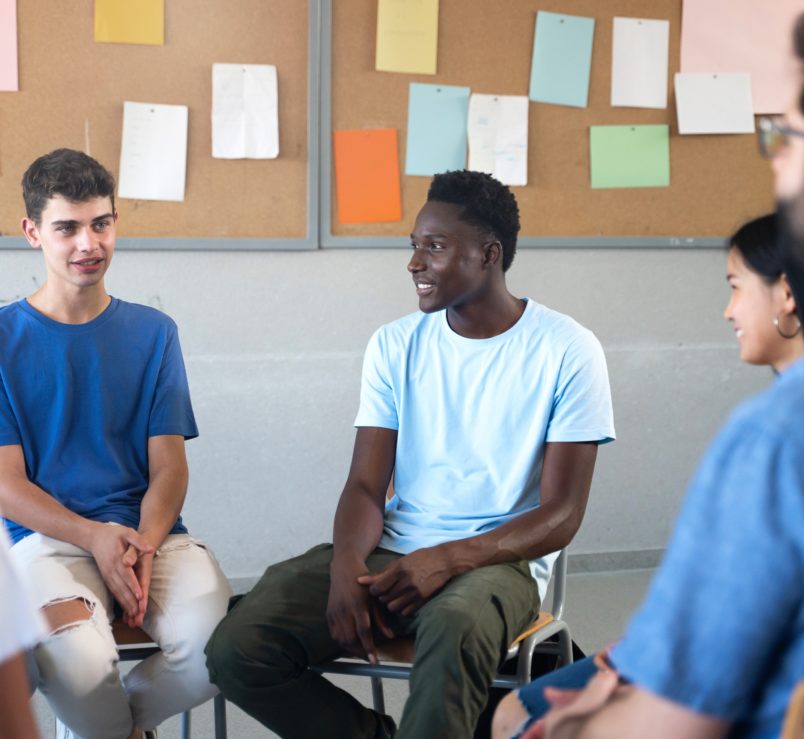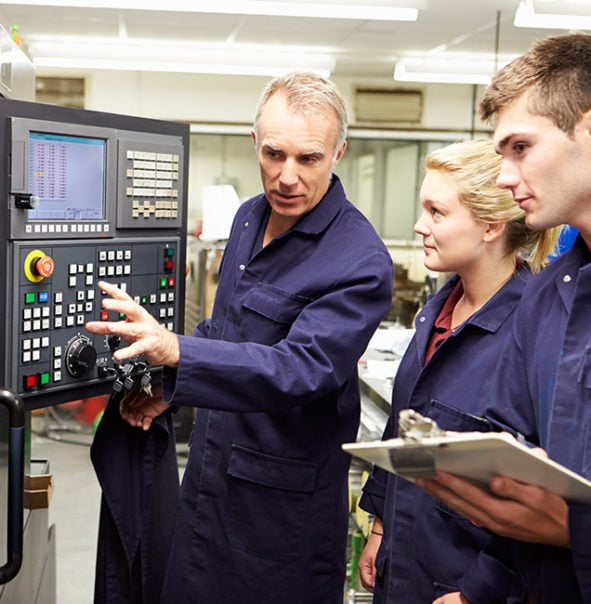SOYEE Meta-evaluation of gender transformative youth employment and enterprise programme
Plan International is an NGO that seeks to achieve gender equality through their international programming and advocacy efforts, to ensure that young girls and boys have the right to be healthy, educated, protected, valued and respected in their own community and beyond.
This objective is underpinned by the assumption, shared more widely within the sector, that men must contribute to achieving gender equality, which means taking actions like challenging negative masculinities and helping to transform power dynamics. Plan International has therefore adopted a gender transformative approach to its work.
Skills and Opportunities for Youth Employment and Entrepreneurship (SOYEE) is one of Plan International’s areas of global programming. SOYEE focuses on ensuring that vulnerable young people are resilient and actively engaged in decent work of their choosing, be it waged or self-employed. Initiatives under SOYEE seek to achieve outcomes under four programme components:
- Life, vocational and entrepreneurship skills and community support: Young people, especially young women, build on and develop their skills for wage or self-employment opportunities.
- Youth entrepreneurship: Young people, especially young women, pursue decent work opportunities of their choosing, whether waged employment or self-employed.
- Youth employment: Young people, especially young women, pursue decent work opportunities of their choosing, whether waged employment or self-employed.
- Decent gender responsive workplaces: Private sector companies invest in and practice decent work principles for young people, particularly young women, in their own businesses and throughout their supply chains.
Plan International commissioned a meta-evaluation to Ecorys to capture results of and learning from SOYEE programming from 2018, shape the future direction of SOYEE and provide a reference for external partners working in the space of youth employment and entrepreneurship, who request Plan’s technical input.
What does a gender transformative approach mean for men, young men and boys?
In the context of the SOYEE meta-evaluation, we assessed the potential of different projects at being gender transformative by referring to the six elements of Plan International’s Gender Transformative Approach, including the ability to influence gender norms, and to support or work directly with buys, young men and adult men to change power dynamics and masculinities.
Gender norms: One of the ways that men, young men and boys can contribute to gender equality is by becoming more aware of discriminatory gender norms, and by stepping out of boxes or expectations placed on them by such norms which are detrimental to their wellbeing. Through tailored dialogues at the family or community level, they can better understand gender expectations about capabilities, roles, decision-making and representation as drivers of inequality. For example, some SOYEE initiatives seek to sensitise family members, especially male ones, about the need to share household and/or caring duties to ensure they do not fall entirely on female members, so that women, young women and girls may pursue other activities, including education or employment.
In some cases where young women and girls subsequently pursue income-generating activities and contribute to family earnings, male family members report being more appreciative of the role wives, daughters and sisters could play for the family, and of their skills as employees or entrepreneurs. In other cases, sensitisation at the community level can help men, young men and boys dismantle stereotypical norms about some sectors or jobs that are typically associated only with males, such as construction or welding, thus creating a more welcoming and inclusive working environment for female peers interested in these jobs.
Power dynamics and masculinities: Men, young men and boys can promote gender equality by exploring, embracing and promoting non-violent, positive and diverse masculinities; and committing to and engaging with others to foster gender equality, inclusion and changing power dynamics. A key example is combining school education, consultative fora, and community work to increase boys and young men’s knowledge about female genital mutilation/cutting (FGM/C) and promote non-violent and positive masculinities. By engaging men and boys through seminars and intergenerational dialogue sessions with elders councils, community leaders and members can more often publicly pronounce themselves against and commit to abandon FGM/C, as well as self-reporting changes in individual behaviours against FGM/C.
Challenges to gender transformative approach
Gender transformation occurs when men, young men and boys act upon this increased awareness, both within their immediate circle (family, friends, peers), and more widely in the community, for example by engaging with the media to challenge predominant narratives, or with political representatives and policymakers to advocate for change. However, gender transformative action often comes with significant challenges at both these levels. As our meta-evaluation found, more support is needed for SOYEE projects that influence discriminatory gender norms, or mobilise boys and young men to promote gender equality. This may be linked with the challenge of working in very traditional contexts, where gender stereotypes, like the one that women and girls should not pursue education or employment, are deeply-rooted.
In these contexts, transformative approaches that seek to change these discriminatory gendered beliefs require more time to permeate communities than what the project timespan often allows. Nevertheless, our analysis suggested that having mixed-gender and intergenerational participation to these initiatives can strengthen support for gender transformation, especially from the wider community, and create more favourable conditions for long-term change. For example, when delivering training about economic empowerment and the dangers of FGM/C, consultations can be held not only with young participants, but also with parents, young anti FGM/C activists, traditional cultural leaders and reformed cutters. This can allow to investigate to what extent a holistic approach at the local level can contribute to change mindsets about FGM/C and female empowerment.
The views expressed in this blog are the author’s and do not necessarily reflect those of Plan International.
For more information about this project please contact Enrica Lorusso: enrica.lorusso@ecorys.com

18 November 2022
5 minute read
Sectors
Services
Key Experts
Enrica Lorusso
Research Manager



